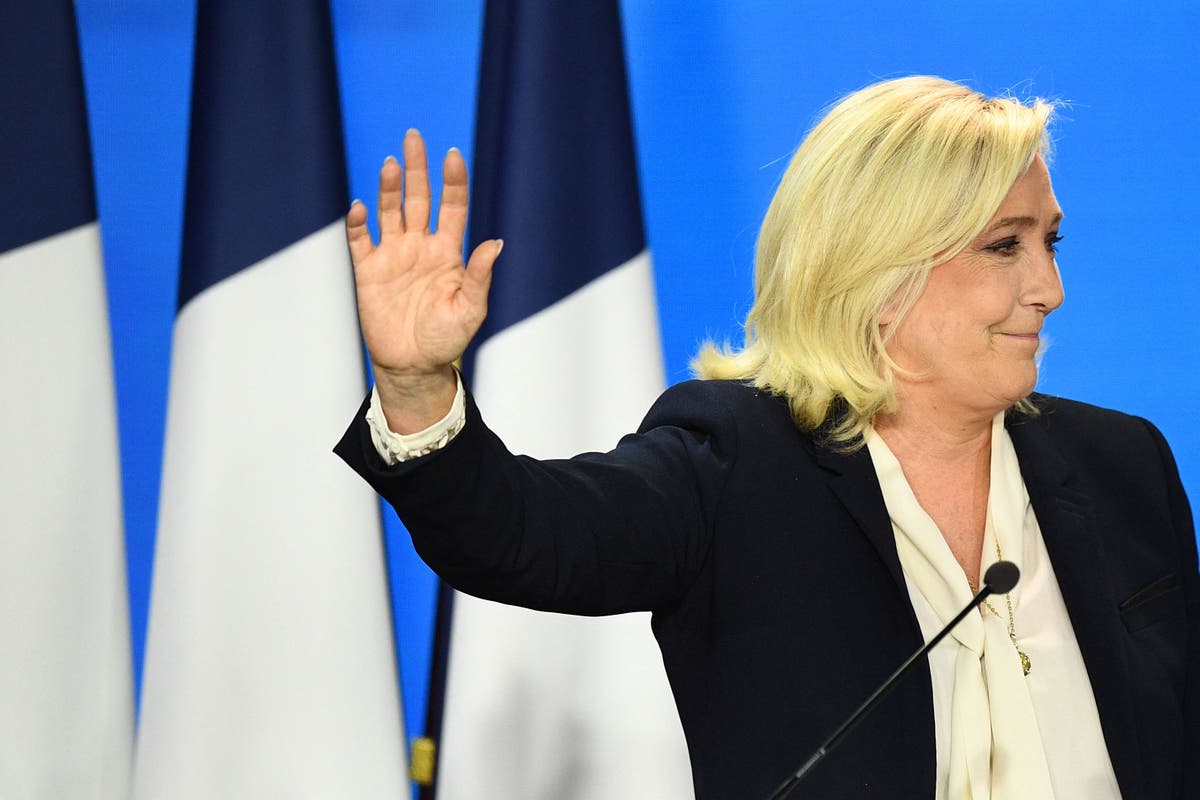
Some sense of perspective is needed when peering across the channel.
Yes, France is saved, and Europe with it, thanks to the older generation of voters who turned out for Emmanuel Macron.
Macron will take his modest vote as a mandate to strengthen his political leadership of the European Union post-Merkel: “More Europe”, as he calls it. It’s not necessarily cheering news for the UK, by the way, to see the EU enjoying a sense of direction.
As Boris Johnson tries, yet again, to renegotiate Brexit, he will find implacable opposition (though Marine Le Pen would no doubt have pursued a hard “France First” policy towards British fisherfolk and the UK in general).
Yet the biggest loser on the night is probably Vladimir Putin. His dream candidate was Le Pen, who would have fractured the EU and the Nato response.
The invasion of Ukraine certainly didn’t help her election campaign – the opposite of the usual pattern of unhelpful Russian interference in western elections.
Had Le Pen won and tried to implement her range of mutually contradictory and discriminatory policies, she would probably, as Macron warned, have wrecked the economy, and the EU, and started a civil war into the bargain.
The moment the exit polls came in on Sunday night (AFP via Getty)
Just think: Marine Le Pen, ally of Putin, would have had control of the French nuclear deterrent and the country’s permanent seat on the UN Security Council.
A disaster averted, then, for sure, and after three goes Le Pen’s party might look for fresh leadership.
It’s premature to dance on the grave of French neo-fascism yet, however. Le Pen won the highest vote of any such candidate in French modern history. We have to process and accept the fact that she is popular.
Almost a quarter of French voters cheerfully supported her in the first round, the one where you vote “with your heart”.
She is the proud heiress of her father’s antisemitic ideology, the Vichy regime, and various crackpot sects over the decades: a woman who wanted to ban Muslim people from wearing culturally harmless headgear, and much else.
Faced with a liberal man of the centre, she commanded the support of more than four in 10 French voters. She probably had a lead – or “won” – among the under-50s.
It is a staggering and frightening fact that so many sane people in this ancient, civilised, democratic culture would willingly install a neo-fascist in the Elysee Palace.
She won the votes of people previously loyal to the left and conservative right in a way unthinkable a few years ago. It’s astonishing.
Emmanuel Macron is set for a second term as president (AFP/Getty)
Look at it this way: in 2002 her father, Jean-Marie Le Pen, ended up in the second round against the then incumbent president, Jacques Chirac. Socialists and the centre rallied around Chirac, and Le Pen got 18 per cent in the second, final round.
Le Pen’s daughter ended up with more than double that vote, around 42 per cent, with an impressive 7 to 8 per cent swing on her last run against Macron in 2017 – another 3 million votes.
She has, to an uncomfortable degree, sanitised and modernised her dad’s cranky, grumpy legacy.
She has finessed, and broadened, the appeal. Soon she will no doubt repeat some of her success in the upcoming French parliament election. The far right is not going away.
That’s the worry.
Many, especially the young, misguidedly viewed the choice between Macron and Le Pen as like contracting cholera or the plague. If Macron was cholera, then France and the wider world should be thankful.
It was as if there was a presidential election in the UK between Tony Blair and Nigel Farage, and the Corbynistas voted for Farage simply because they hated Blair so much.
The volatility of the youth vote in France, to put it politely, is the biggest single threat to European stability today. A few years of economic hardship and broken promises could see the far right score even more gains in the coming years.
Between them, Macron and Le Pen have destroyed the normal political structures of left and right in France, squashed in a strange pincer movement of centrist Europhiliac populism from Macron and Le Pen’s populist nationalism – and that is not sustainable.
Therefore the longer-term outlook is poor. The traditional mainstream parties of the left and Gaullist right have been smashed in the process, with no signs of them recovering.
Macron, though still a youngish man (he turns 45 in December), won’t be able to run again under the French constitution (and a helpful amendment is unlikely to pass); and his En Marche! movement was very much a personal vehicle for his ambitions.
Without Macron, En Marche! would wither, and there will be a completely disjointed party system on the centre-left and centre-right; while Le Pen’s party, perhaps linked up with the even more distasteful Eric Zemmour, could conceivably still thrive under her or a new more charismatic leader with less baggage.
The next campaign to save France should start today.








